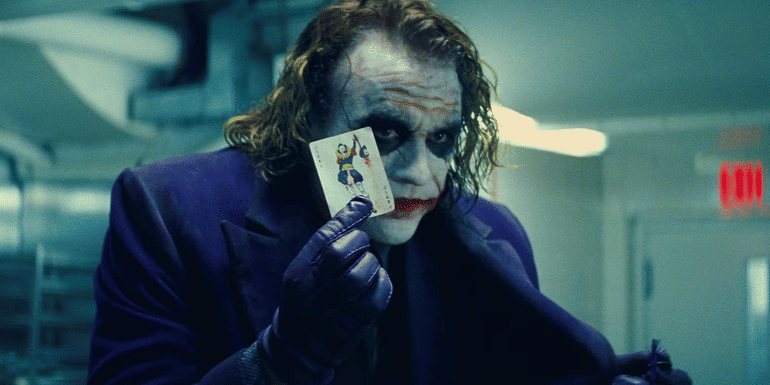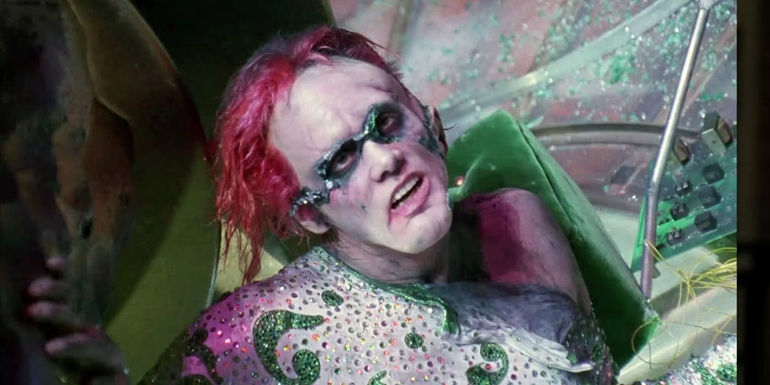
How Nolan's Batman Success Came From Ignoring The Biggest Superhero Movie Trope

Exploring the unique approach of Christopher Nolan's Batman in The Dark Knight trilogy and its impact on the superhero genre.
The Realistic Approach to Superhero Storytelling
Christopher Nolan's take on Batman in The Dark Knight trilogy stands apart in a cinematic landscape where superhero movies often lean into their larger-than-life elements and changed the landscape of the DCU forever. Its success hinges on a unique approach: sidestepping the tropes defining the genre. Nolan's interpretation of Batman redefined the character and set a new standard for superhero storytelling, and changed the DC movie timeline forever.
Heath Ledger's Joker and Christian Bale's Batman in an interrogation room in The Dark Knight
This emphasis on the realistic was not just a stylistic choice but a strategic one, setting The Dark Knight trilogy in a whole new category from its predecessors and contemporaries. This version of Batman isn't really about Batman as much as it is about the very real human behind the mask. Nolan's Batman stands as a stark contrast in a genre characterized by its willingness to embrace, and sometimes even make fun of, its over-the-top nature. His interpretation takes a deep dive into the psychology and human condition of the characters, offering a story that feels more plausible and relatable. Leaving the DCU with a new problem: Just how great The Dark Knight Trilogy is.
Aaron Eckhart, Christian Bale and Gary Oldman talking on a rooftop in The Dark Knight
Christopher Nolan's The Dark Knight trilogy is famous for its gritty realism, in stark contrast to the typical approach to other superhero stories where the powers, skills, and abilities drive the action. For Nolan, the intrigue lay more with the person behind those powers. The documentary Behind The Dark Knight Trilogy offers intriguing insights from Nolan, who emphasized the importance of grounding the superhero in reality. He stated, 'It's about giving the world and the characters as much weight and validity as you would if your source material was not a comic book.'
Christian Bale as Bruce Wayne standing in front of his Batman suit in The Dark Knight
While not entirely forsaking the unrealistic aspects, this approach focused more on believability and relatability. Unlike many modern superhero films, which often embrace or even mock their exaggerated nature, Nolan's Batman resonates because of its plausibility. This distinct take on the superhero genre is a significant reason why the trilogy remains a benchmark in cinema.
Batman uses his Batpod to escape the Gotham City Police at the end of The Dark Knight
Setting the Stage for a New Batman
Batman Forever and Batman and Robin, directed by Joel Schumacher, were criticized for their exaggerated, almost cartoonish portrayal of Gotham and its characters. That, in turn, was a course correction after Tim Burton's Batman movies created an issue for Warner Bros: their darkness limiting lucrative family audience appeal. This approach, which felt too outlandish and silly, ultimately set the stage perfectly for Nolan's success.
The Joker (Heath Ledger) holding a joker playing card in The Dark Knight
Nolan capitalized on the failures of the previous versions, tossing the source material and simply followed the characters and chain of events to their logical conclusions, providing a much-needed reboot with his more gritty and realistic version of Batman. This shift revitalized the Batman franchise and influenced the direction of superhero movies in general. All of a sudden, the human elements took center stage.
Jim Carrey as the Riddler in Batman Forever (1995)
Christopher Nolan's take on Batman in The Dark Knight trilogy is a testament to the power of defying genre norms. By stepping away from the established tropes of superhero movies and focusing on realism and depth, Nolan not only pumped fresh life into Batman's cinematic presence but also left an unforgettable mark on the superhero genre as a whole. His take on Batman set a new standard to work toward, showing that sometimes, the best way to succeed is to break away from tradition and chart a new course entirely.
The Impact on Superhero Genre
Christopher Nolan's take on Batman in The Dark Knight trilogy is a testament to the power of defying genre norms. By stepping away from the established tropes of superhero movies and focusing on realism and depth, Nolan not only pumped fresh life into Batman's cinematic presence but also left an unforgettable mark on the superhero genre as a whole. His take on Batman set a new standard to work toward, showing that sometimes, the best way to succeed is to break away from tradition and chart a new course entirely.



















